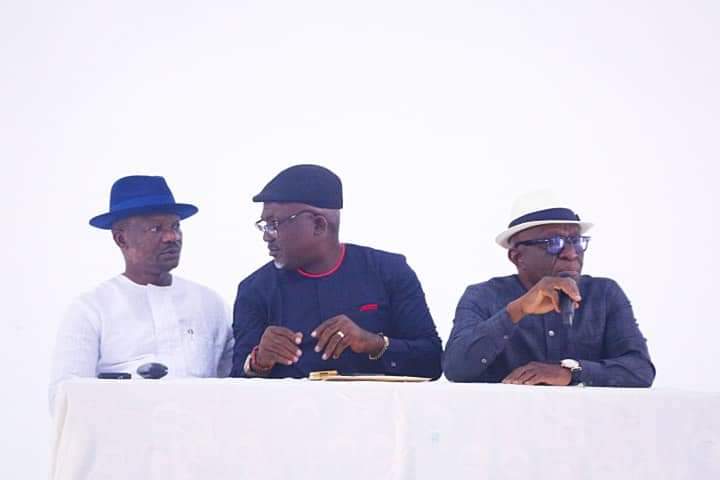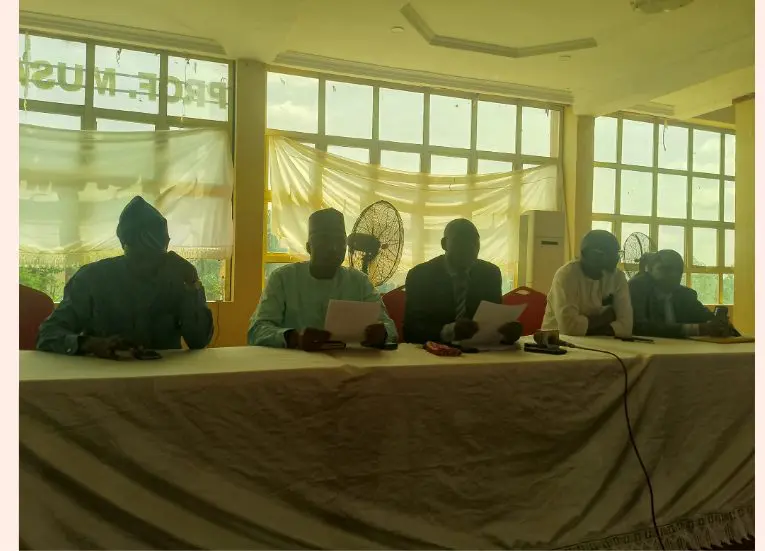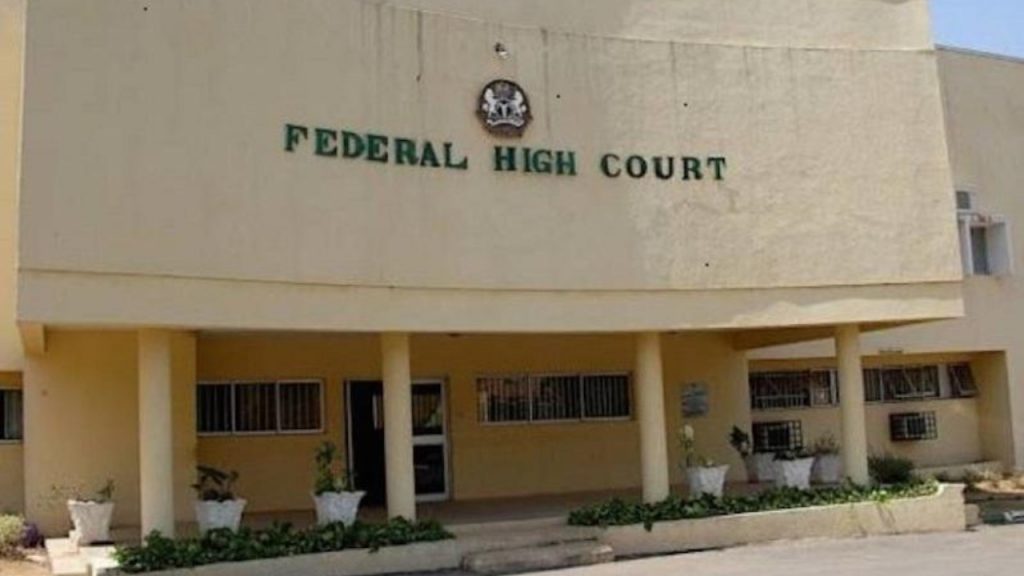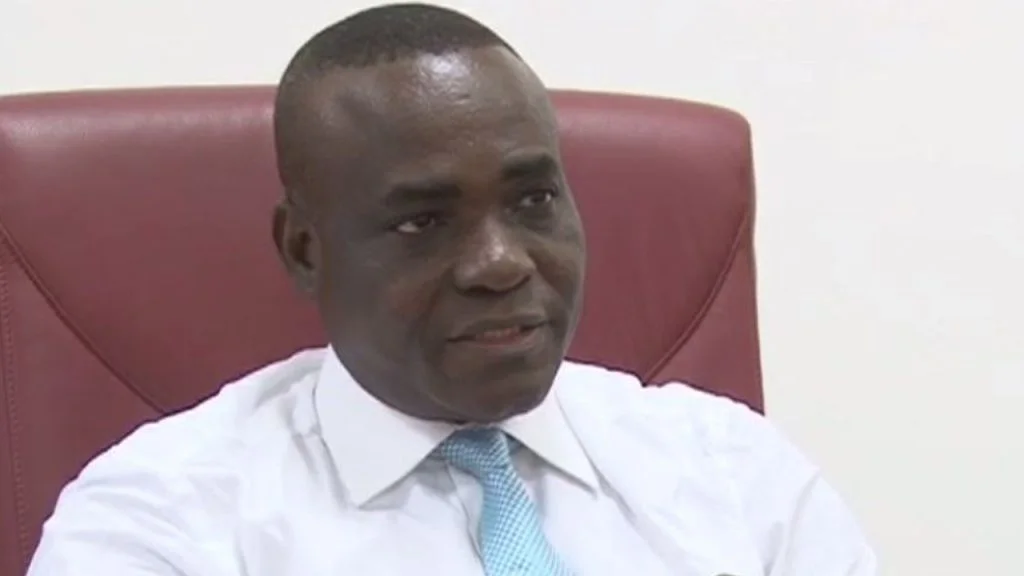News
Delta approves N3.9bn disbursement for D-CARES programme

The Delta State Executive Council has given its approval for the disbursement of N3,887,277,784.66 as part of the D-CARES implementation program of the state government. This marks the second reimbursement from the World Bank. Commissioner for Economic Planning in Delta State, Sonny Ekedayen, made this announcement during a press briefing on Friday, where he discussed key decisions made at the state executive meeting chaired by Governor Sheriff Oborevwori.
Ekedayen mentioned that the funds have been allocated through Direct Cash Transfer, FADAMA, Livelihood, and Direct Labour. The approval aligns with Governor Oborevwori’s focus on human capital development and social intervention. Some Deltans have already begun receiving alerts, and Ekedayen emphasized that this initiative will continue. He explained that the coordinating body, NG-CARES in Abuja, is expected to conduct another round of independent verification exercises in early January next year, where Delta State’s progress will be assessed, potentially leading to additional reimbursements.
The commissioner commended the State House of Assembly, particularly Speaker Emomotimi Guwor, Chair of the House Committee on Appropriation Marilyn Okowa-Daramola, and other members for the swift passage of the 2024 Delta State budget recently signed into law by the governor. Ekedayen clarified that the additional N10 billion in the appropriation bill was intended to facilitate more infrastructural transformation.
Regarding the state’s internally generated revenue, which exceeded expectations at N144 billion compared to the initial N110 billion, Ekedayen expressed confidence that the implementation of the 2024 budget would not encounter challenges.
Commissioner for Works (Rural and Riverine Roads) Charles Aniagwu also briefed journalists, noting the approval for the reconstruction of the road from Okan Junction in Okpe, passing through Agbarho in Ughelli North, to connect to the East-West Road. The 3.47-kilometer project aims to ease traffic flow during the construction of flyovers around PTI, DSC, and the Effurun roundabout. Additionally, the executive council directed the Ministry of Works to investigate the state of the Bomadi Road, addressing concerns about its condition. Plans are underway to assess the road and provide cost estimates for necessary improvements in the coming weeks.
News
Nigeria s 1999 Constitution full of flaws – Muslim lawyers association

The Muslim Lawyers Association of Nigeria, MULAN, has declared that there are many defects and flaws in the current 1999 Constitution of the Federal Republic of Nigeria.
MULAN National President, Dr Kazeem Olajide Olaniyan, made this declaration while addressing a press conference to herald the 15th annual general conference of the association on Thursday in Ibadan, the Oyo State capital.
Olaniyan stressed that Nigeria needs a homegrown Constitution that will address the current challenges facing the country.

According to him, the 1999 Constitution was drafted during the military rule and has many defects and flaws.
He noted that a homegrown will address the current problems the country is facing.
Olaniyan while speaking further, maintained that the theme of the conference, ‘National Development: The new dynamics and nuances’, was chosen so as to provide solutions to the country’s problems.
He also used the medium to appeal to the government to address the issue of fuel scarcity, food crisis and inflation in the country.
“Any Constitution Nigeria must have must be homegrown. What we have now was drafted by the military.
“There are so many defects and flaws in the 1999 constitution.
“Removal of subsidy of petroleum has effect on all of us coupled with inflation. We are now experiencing fuel scarcity.
“As we speak, if we are blaming the government, there are so many things we as people are also causing. We are also calling on the government to address the problem of food insecurity.”
News
Court adjourns trial in Nigerian Govt versus Ali Bello, others to May 27

Senator Ita Enang, former Special Adviser to the President on National Assembly Matters, attributed the failure of the Nigerian economy, the escalating debt burden, and the depreciation of the national currency, the naira, to the National Assembly. Enang made these remarks during the public unveiling of Oversight Magazine, a publication dedicated to covering parliamentary events, by former House of Representatives member Aniekan Umannah.
Enang asserted that the National Assembly’s inability to pose pertinent inquiries was accountable for the economic challenges. Having chaired both the House and Senate Committees on Rules and Business, Enang criticized the chambers for never releasing reports on their oversight duties as required, nor for questioning the nation’s debt.
He highlighted that while lawmakers frequently conduct oversight visits to scrutinize the activities of Ministries, Departments, and Agencies, they neglect to present their findings for deliberation on the parliamentary floor. According to him, the executive’s suboptimal performance, at both state and national levels, can be attributed to the deficient oversight of the National Assembly and state Houses of Assembly nationwide.
Enang emphasized the importance of the oversight function, stating that it allows for monitoring the utilization of budget allocations, assessing project progress, and planning future budgets accordingly. He concluded that the failure of the Nigerian economy, the devaluation of the naira, and the excessive debt accumulation are ultimately the responsibility of the National Assembly.
News
NASS responsible for failure of Nigeria’s economy, rising debt – Ita Enang

Senator Ita Enang, former Special Adviser to the President on National Assembly Matters, attributed the failure of the Nigerian economy, the escalating debt burden, and the depreciation of the national currency, the naira, to the National Assembly. Enang made these remarks during the public unveiling of Oversight Magazine, a publication dedicated to covering parliamentary events, by former House of Representatives member Aniekan Umannah.
Enang asserted that the National Assembly’s inability to pose pertinent inquiries was accountable for the economic challenges. Having chaired both the House and Senate Committees on Rules and Business, Enang criticized the chambers for never releasing reports on their oversight duties as required, nor for questioning the nation’s debt.
He highlighted that while lawmakers frequently conduct oversight visits to scrutinize the activities of Ministries, Departments, and Agencies, they neglect to present their findings for deliberation on the parliamentary floor. According to him, the executive’s suboptimal performance, at both state and national levels, can be attributed to the deficient oversight of the National Assembly and state Houses of Assembly nationwide.
Enang emphasized the importance of the oversight function, stating that it allows for monitoring the utilization of budget allocations, assessing project progress, and planning future budgets accordingly. He concluded that the failure of the Nigerian economy, the devaluation of the naira, and the excessive debt accumulation are ultimately the responsibility of the National Assembly.
-

 World News7 months ago
World News7 months agoWhat we know about Israel’s war with Hamas
-

 Sports7 months ago
Sports7 months agoLaLiga: Everyone want to play with him – Vinicius on player Real Madrid should sign
-

 World News7 months ago
World News7 months agoIran calls on Islamic, Arab countries to confront Israel
-

 Tech7 months ago
Tech7 months agoTop 10 AI Skills to Learn in 2023
-

 Entertainment7 months ago
Entertainment7 months agoBET Hip-Hop Awards: Black Sherif wins big as Burna Boy loses seven nominations
-

 Entertainment7 months ago
Entertainment7 months ago‘Black Panther’ star Lupita Nyong’o breaks up with boyfriend, Selema Masekela
-

 ICT8 months ago
ICT8 months agoApple Bows To EU, Unveils iPhone With USB-C Charger
-

 World News7 months ago
World News7 months agoZelensky seeks defences for winter on visit to NATO


